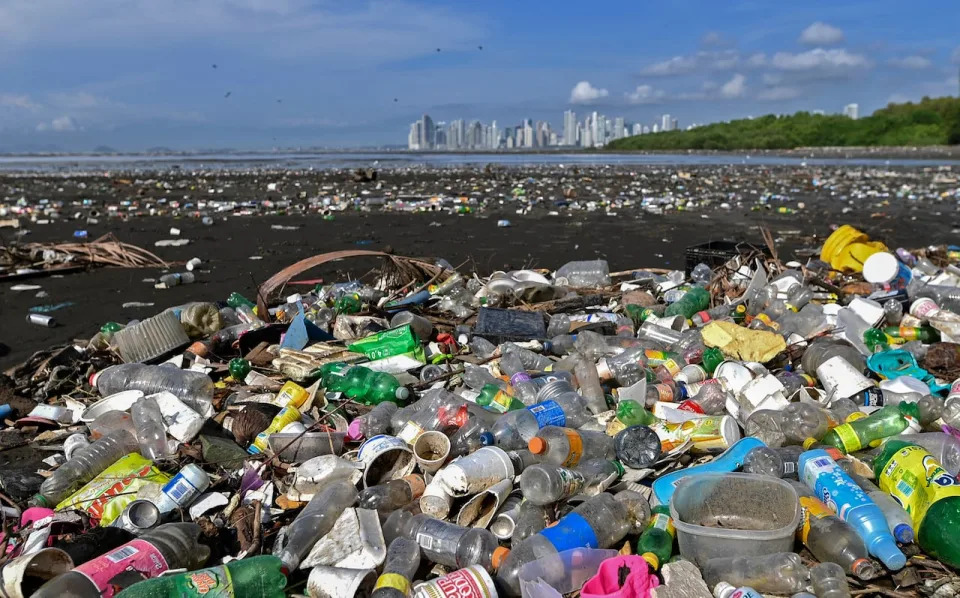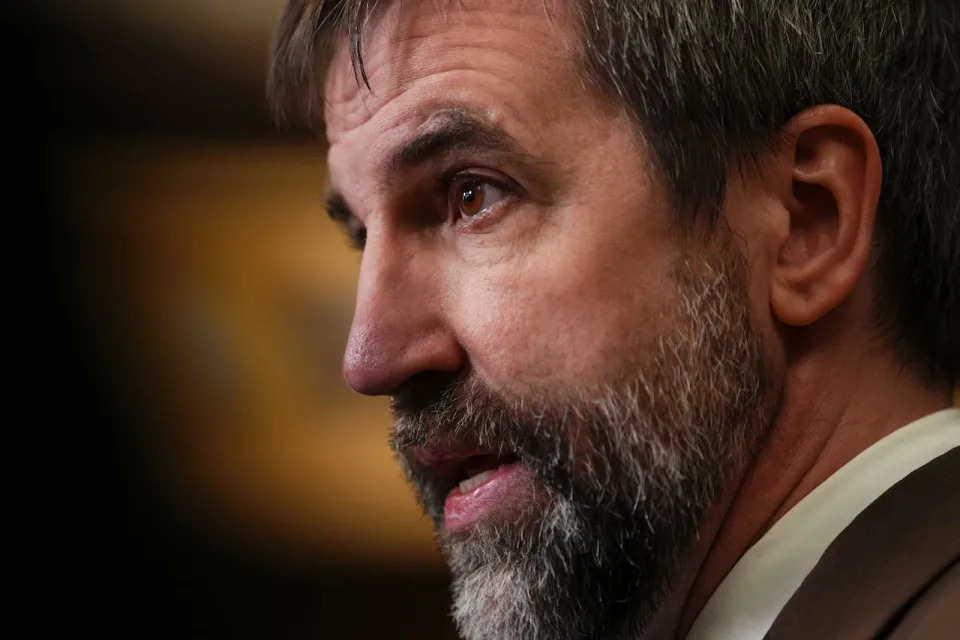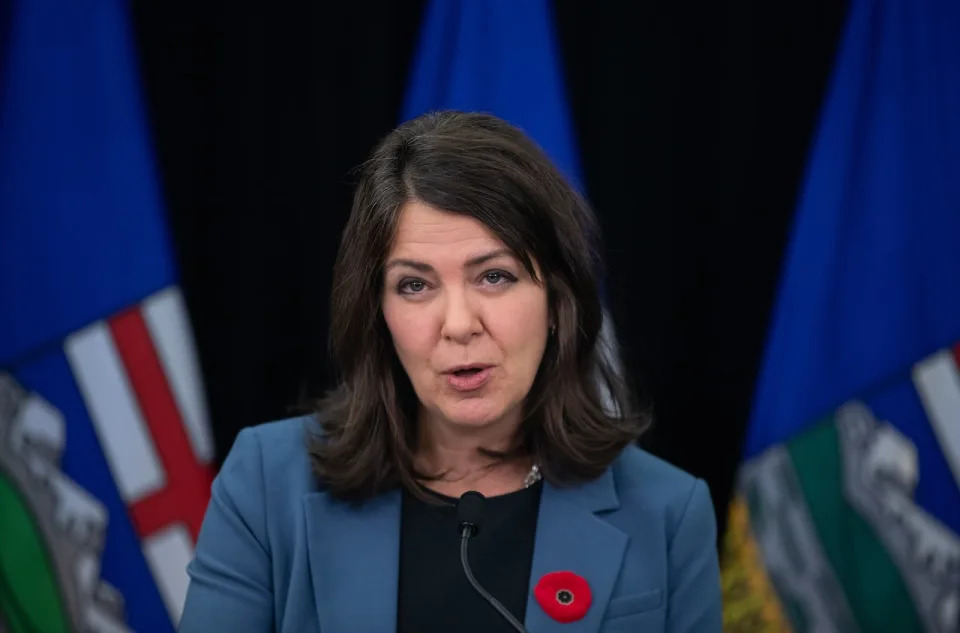CBC
Thu, November 16, 2023

Federal regulations are supposed to prohibit the sale of single-use plastic checkout bags, cutlery, food service ware, stir sticks and straws in Canada after December 20. (AFP via Getty Images - image credit)
A Federal Court judge has ruled that a federal government decision to list plastic items as toxic was "unreasonable and unconstitutional."
In a ruling released Thursday, Justice Angela Furlanetto wrote that the category of plastic manufactured items was too broad to be given a blanket toxicity label under federal law.
"There is no reasonable apprehension that all listed [plastic manufactured items] are harmful," Furlanetto wrote.
The case was brought forward by a group of major industrial players in plastics, including Dow Chemical, Imperial Oil and Nova Chemicals. They argued that Ottawa failed to demonstrate it had enough scientific evidence to justify the regulations.
Environment Minister Steven Guilbeault said the federal government is reviewing Thursday's decision and is "strongly considering an appeal."
"Canadians have been loud and clear that they want action to keep plastic out of our environment," he said in a statement posted on X, formerly Twitter. "That's what we'll keep fighting for."
The move to list plastic items as toxic was a key step that allowed Ottawa to proceed with a ban on some single-use plastic items. Those regulations will prohibit the sale of plastic checkout bags, cutlery, food service ware, stir sticks and straws in Canada after December 20.

Minister of Environment and Climate Change Steven Guilbeault reacts to the Commissioner of the Environment and Sustainable Development’s report while speaking to reporters in the foyer of the House of Commons on Parliament Hill in Ottawa on Tuesday, Nov. 7, 2023.
Minister of Environment and Climate Change Steven Guilbeault says the government is considering appealing the decision. (Sean Kilpatrick/The Canadian Press)
Lindsay Beck, a lawyer who acted on behalf of environmental groups that intervened in the case, called Thursday's decision "disappointing."
"We know that plastic pollution is one of the major environmental crises of our time and this [ruling] really hampers the federal government's ability to come to grips with this crisis," Beck told CBC News.
Regulating waste management is generally a provincial responsibility. The government is only able to regulate substances for environmental protection if they are listed as toxic under the Canadian Environmental Protection Act.
But Furlanetto wrote that adding a broad category of plastics to the list went beyond the rules of the Act.
"Not every item within [the plastic manufactured items category] has the potential to create a reasonable apprehension of harm," Furlanetto wrote.
The judge also wrote that Ottawa's decision "poses a threat to the balance of federalism" because it didn't restrict its regulations to those plastics that have "potential to cause harm to the environment."

Alberta Premier Danielle Smith is urging Ottawa not to appeal the decision. (Jason Franson/The Canadian Press)
Alberta Premier Danielle Smith and her Environment Minister Rebecca Schulz said Ottawa's initial decision to add plastics to the toxic substance list was an example of "federal overreach."
"It's time for the federal government to listen to the courts and to Canadians. We urge them to not appeal this decision, and to immediately delete 'plastic manufactured items' from [the toxic substance list]," they said in a joint statement.
ALBERTA IS A PRODUCER OF PLASTICS
The case dealt specifically with an order-in-council that originally added plastic manufactured items to the toxic substance list. Those items were then listed as toxic by law after Bill S-5 received royal assent in June.
Ottawa tried to argue that the judge's ruling will not affect its single-use plastics ban due to S-5's passage. While Furlanetto quashed the original order-in-council, she didn't rule on the constitutional validity of S-5.
But Beck said that by quashing the order-in-council, the judge effectively struck down the government's reasoning for adding plastics to the toxic substance list under S-5.
The case dealt specifically with an order-in-council that originally added plastic manufactured items to the toxic substance list. Those items were then listed as toxic by law after Bill S-5 received royal assent in June.
Ottawa tried to argue that the judge's ruling will not affect its single-use plastics ban due to S-5's passage. While Furlanetto quashed the original order-in-council, she didn't rule on the constitutional validity of S-5.
But Beck said that by quashing the order-in-council, the judge effectively struck down the government's reasoning for adding plastics to the toxic substance list under S-5.
No comments:
Post a Comment